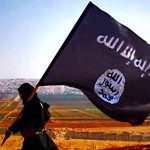On Saturday President Obama took to the podium in the Rose Garden and announced that he had decided that in response to the Syrian government’s use of chemical weapons against its own people, resulting in well over a thousand casualties including hundreds of children, he believed that the United States “should take military action against Syrian regime targets.” Acknowledging paralysis at the level of the United Nations Security Council and a lack of will even among our closest allies, he asserted his willingness to act unilaterally. However, the president tapped on the brakes by saying that he would only act if his intended military intervention was approved by Congress.
I interpreted the president’s position as a brilliant political move. Through his tough talk, he demonstrated both his mettle and his humanitarianism. Despite admitting being “war weary” himself, he is willing to commit U.S. military assets (but not personnel on the ground) in order to protect those who are targeted by their own government. In so doing, President Obama seems to be fulfilling the spirit of the “Responsibility to Protect” (or “R2P”) doctrine that has slowly emerged in international law since the mass killings of the 1990s in Rwanda and the former Yugoslavia—namely, that the international community has a responsibility to protect civilians from their own governments rather than stand by and watch atrocities occur.
At the same time, in punting the decision to Congress the president is portraying himself as the grand defender of constitutional democracy and direct congressional oversight over the nation’s use of military force—no George W. Bush he! If a use of force resolution fails, then Congress is to blame. If a use of force resolution succeeds, then Congress is to blame. Like Pilate, Obama doesn’t want blood on his hands—or at least, not this blood, and not on him alone. And given the historic fecklessness of this Congress, it’s not likely they can decide what to have for lunch let alone whether to take decisive action on such a vexing issue.
Syria is indeed vexing. The president appropriately raised a number of the pressing moral questions:
“What message will we send if a dictator can gas hundreds of children to death in plain sight and pay no price? What’s the purpose of the international system that we’ve built if a prohibition on the use of chemical weapons that has been agreed to by the governments of 98 percent of the world’s people and approved overwhelmingly by the Congress of the United States is not enforced? . . . If we won’t enforce accountability in the face of this heinous act, what does it say about our resolve to stand up to others who flout fundamental international rules? To governments who would choose to build nuclear arms? To terrorists who would spread biological weapons? To armies who carry out genocide?”
The president followed by speaking to American values:
“We are the United States of America, and we cannot and must not turn a blind eye to what happened in Damascus. Out of the ashes of world war, we built an international order and enforced the rules that gave it meaning. And we did so because we believe that the rights of individuals to live in peace and dignity depends on the responsibilities of nations. We aren’t perfect, but this nation more than any other has been willing to meet those responsibilities. . . . Now is the time to show the world that America keeps our commitments. We do what we say. And we lead with the belief that right makes might—not the other way around.”
These are powerful words with a compelling message. Of course, as a lawyer the president knows full well that he has asked a series of leading questions and provided a particular framing of history that are designed to get us to the same conclusion he has arrived at. I could parse and contend with virtually every one of his assumptions and declarations, but have not the time, space, nor inclination to do so. He has made his case. No matter what Congress decides, people have died, and people will continue to die. There will be blood.
There is also another way—a way pointed out from the Chair of St. Peter. On Sunday Pope Francis devoted much of his weekly Angelus address to the Syria situation. Far from overlooking the crisis, he directly denounced the Assad government: “With utmost firmness I condemn the use of chemical weapons. I tell you that those terrible images from recent days are burned into my mind and heart. There is a judgment of God and of history upon our actions which are inescapable!” Then earlier today the pope tweeted the following message: “War never again! Never again war!” Both Assad and Obama stand rebuked. The pope called for all Christians and people of goodwill to join him in prayer and fasting to end the conflict in Syria. In so doing, he invoked what for him—and presumably for all believers—is the ultimate reality: God. The nations of the earth are in God’s hands, the pope was suggesting, and we must exercise faith that our appeals to Him will be heard, and that He will judge the nations.
Skeptics will say the pope is not realistic, even naïve. Prayer and fasting do not end international conflict, they will scoff. And God’s track record on stopping genocide hasn’t been too good in the past century. Perhaps they are right. But the “realists” who believe that the weapons of war bring about the end of international conflict are equally wrong. Realists who say that pacifists are only inviting further slaughter are correct. Pacifists who say that realists are only causing further slaughter are correct. War has never brought about lasting peace. Anywhere. Anytime. Only diplomacy and reconciliation—the works of peace—bring peace.
I don’t know what Congress will do (or, given its recent track record, not not do) in the coming days. If Congress fails to authorize force, the Assad regime and the rebels will continue to slaughter one another, probably in increasingly brutal ways, while the world stands by and watches. If Congress does authorize force, the United States will send missiles into Syria, killing dozens, hundreds, thousands of pawns of the Syrian regime, and any number of civilians (“collateral damage”) as well. The U.S. military will not seek to kill Assad directly, because we have laws against that kind of thing. He will survive, his government will survive, and he and his supporters will be emboldened, perhaps unleashing whatever other stockpiles of chemical weapons he has left. Perhaps the blood will stop flowing only when there is no one left to kill.
Readers of the Book of Mormon will find these scenes—and the difficult moral questions attached to them—all too familiar. Indeed, the book presents seemingly every possible option regarding the slaughter of innocents. At one point disciples watch as innocents are slaughtered, and say they are moved by the Spirit of God not to stop the carnage, but that God will save the innocent victims and judge the perpetrators. At another point disciples lay down their weapons of war and allow themselves to be slaughtered rather than to shed blood themselves. Then they send aid in kind to the soldiers who stand between them and their enemies. Then they send their sons to war—all of whom are miraculously preserved while defeating the enemy. At another point disciples organize militarily in defense of faith, family, and freedom, engaging in both defensive and preemptive war to preserve their national interests. At another point God’s people are rescued from their oppressors through a combination of nonviolent strategy and the miraculous power of God, without the shedding of any blood. At another point disciples live for two hundred years in peace because they embody the virtues of the Sermon on the Mount (or in this case, the Sermon at the Temple). The love of God that reigns in their hearts will allow them no other path but the path of mercy, forgiveness, kindness, and peace. The book ends with not one but two civilizational holocausts. Indeed, in the Book of Mormon the violence starts when humans arrive on the scene, and ends only when there is virtually no one left to kill, except for lone prophetic voices who stand as witnesses to what happens when people forget the message of Jesus not only in their personal but also in their political lives.
Benjamin Franklin said that the only guarantees in life were death and taxes. We might add poverty and violence to the list as well. The question then is which response to the blood and sins of this world is most “real”: the principled violence of the president, or the faithful nonviolence of the pope?











